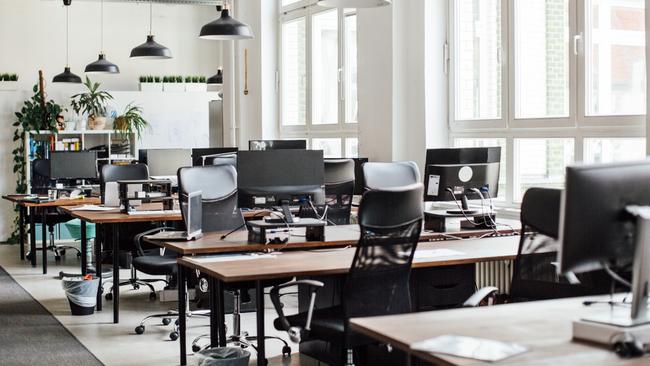‘Productivity’: Why bosses want workers back in the office
Bosses are begging workers to come back into offices because of one thing many people aren’t doing from home.

At Work
Don't miss out on the headlines from At Work. Followed categories will be added to My News.
Bosses are begging workers to come back into offices because of one thing many people aren’t doing from home.
Working from home, which has become standard since the Covid pandemic, is back to being a hot topic because last week, New South Wales Premier Chris Minns announced that working-from-home privileges introduced in 2019 would end, with all public servants now being forced back into the office.
The announcement has not gone down well, with government workers branding the move “out of touch” and claiming it would mean a “massive pay cut” for those now having to spend time and money travelling into the office.
Recruitment expert Roxanne Calder said that even in the private sector she’s dealing with bosses who constantly declare they need people back at their desks.
Ms Calder said she’s seeing pushback from clients who claim they “need people in the office more” because workers aren’t engaged.
“When you have employees and teams that are highly engaged, that translates to high-performing teams. When you are working remotely from home, it is harder to maintain that. We need eye contact, body language,” she told news.com.au.

The recruitment expert said she doesn’t think working from home is going away, but people need to treat it like a normal office day.
“It is essential to have a routine from working from home. I think that has a lot to do with productivity,” she said.
Ms Calder said that the lack of “productivity” happening when some people work from home is forcing employers to become weary of giving people too much flexibility.
“You need to get up at the same time, set up your morning routine at the same time, and when you go to the meetings that are virtual, contribute at the same level and treat it like a typical work day,” she advised.

Claudia Gough, 28, works in PR and works from home three days a week and she’s created a routine to ensure she’s productive when she’s not in the office.
Although it is tempting to roll out of bed and open her laptop, she’s found that the best way to work is to have less chaos.
“I’m way more productive at work when I have a good routine,” she told news.com.au.


Ms Gough is a typical Gen Zer who loves to work from home but she’s also very prepared to put in the effort to keep the flexibility.
“When working from home really kicked off during lockdown, I really struggled to find my groove. I got into the habit of sleeping in and jumping straight online, and working right through until it was dark again,” she said.
Ms Gough said that not having a routine meant she ended up working more because she wasn’t managing herself.
“It’s so easy to do, especially when you’re really busy, but it took such a toll on my mental health. Not taking the time to exercise and clock off was really affecting me and prompted me to make a change,” she said.

Now, Ms Gough is more disciplined with her days. She makes sure she goes to pilates, for instance, before work starts. She’s found that working from home allows her to get the most from her life.
“I do love how much more I can pack into my day, especially in winter when the days are shorter,” she said.
“I live on the Northern Beaches, so I love that in summer, I can start my day with a swim and a walk and not have to worry about making it home in time to get ready and get into the city.”
Plus, there’s the fact that she squeezes in chores.
“I also love that I can fit in my washing and cleaning on these days so that my weekends aren’t filled with boring errands,” she said.
Of course, she’s still in the office two days a week, but she finds that she can happily work from home for the bulk of the week because she’s close to her co-workers.
“I’m super lucky that I work with some of my best friends who I am constantly chatting to on my WFH days but I can imagine it would be so tough for some not having the social interaction when WFH too much,” she said.
Originally published as ‘Productivity’: Why bosses want workers back in the office





